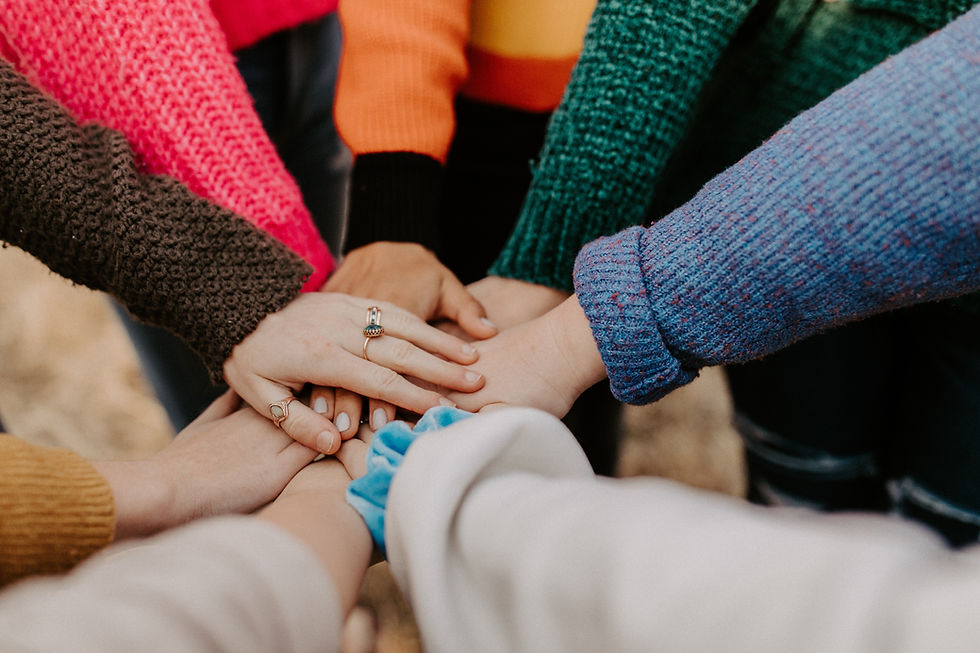Ten Things Your Neuro-diverse Friend Wishes You Knew
- Fiona Murray

- Jan 2, 2024
- 3 min read

The term neuro-divergent has recently started to be used to describe people who have neurological differences from the majority such as ASD, ADHD, dyslexia, high sensitivity, dyspraxia, learning difficulties and high giftedness. In fact, these differences are part of the wide span of neuro normality throughout the human population and the range of differences in individual brain function and behavioural traits can be regarded as something we should expect. However, being regarded as normal is not something your neurodivergent friend may have experienced all that much during their life so here are 10 things your friend wishes you knew!
1. New situations can be a challenge – whether it’s something new in the environment or something new emotionally, time is needed to incorporate all the new sensory information and process it. This takes different amounts of time depending on how we are doing that day. Giving us time to get used to things gradually is best rather than whisking us away on a surprise holiday to Marrakech, well not unless you have asked us first if we would enjoy that!
2. Hidden meanings can be hard – especially when using the English language there can be a lot of hidden meanings in spoken and written communication. If it is important that we are clear about what you mean then tell us, if you expect us to work out what the inference is we might find that hard or find an alternative meaning that you did not intend. If you really want us to come to the party say “I really want you to come because..” rather than “ I’m having a party..” and wanting us to work out how important our attendance is.
3. Being specific is helpful – generalities are less helpful than stating specifically what is needed. At work we need to know that the documents are required by 2pm rather than ‘as fast as possible’. In social situations we like to know that if we are meeting at a restaurant for supper that you will be there at 7pm if you tell us that the booking is at 7pm and we also need to know that if we have a tendency to be late how long you will wait before ordering or leaving! The relationship to time can be different so ask what works for me!
4. We want to be listened to and more importantly heard – everyone needs friends who really listen but it is also important to communicate that we have been heard so if I say ‘I’m tired now let’s go back to the hotel.’ let me do that rather than half way back to the hotel dart off on a side trip because ‘We haven’t been to that beach before!’
5. We’re just people – not everything we say, do or want is because of the diagnosis so please interact with us just like you do with the rest of your friends unless we specifically request something different.
6. We’re all individuals – please remember that just because your best friend at school had the same or similar traits that doesn’t mean that I’m like that and please don’t use the descriptor as a way of identifying me as in ‘And this is Sabir my friend with….’
7. Your experience is your experience – exactly! You cannot know what my experience is so when I say that it’s too noisy, too overwhelming or my brain has so many tabs open I can’t think about that right now please do not try and say that it’s the same for you! It really isn’t!
8. Being made to feel different is unhelpful – there are lots of different identities now which are so well accepted that we don’t need to mention them and to do so would be considered a bit rude so please make sure that your behaviour towards me isn’t pointing out my differences either!
9. We have emotions too – maybe some days we are easier to understand than others but turning away, deciding we are too much to bother with or letting us down unexpectedly are as unkind as the would be towards anyone else.
10. We have more in common than you think – we want to be happy and loved, find a way to contribute to the world which makes the best of our talents and be given a helping hand when things are tough, just like you do and that’s what friends are for!
Being a good friend to me means showing the same respect, care and empathy that you would want for yourself and then the relationship based on mutual understanding and connecting in meaningful ways will be one of the best in your life! We can offer a different perspective on life, bring out a side of you you may never have experienced and enrich your existence with our loyalty and ideas !




Comments